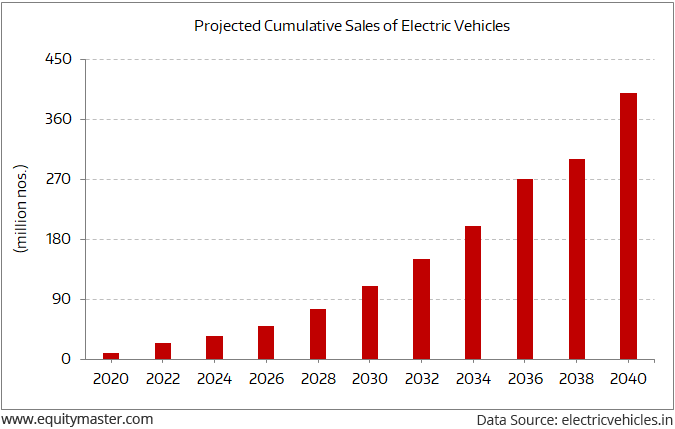India's Third Giant Leap
This Could be One of the Biggest Opportunities for Investors
- Home
- Todays Market
- Indian Stock Market News January 22, 2020
Sensex Opens Higher; Telecom and IT Stocks Lead Wed, 22 Jan 09:30 am
Asian stock markets are higher today as Chinese and Hong Kong shares show gains. The Shanghai Composite is up 0.5% while the Hang Seng is up 0.9%. The Nikkei 225 is trading up by 0.5%. Wall Street lost ground on Tuesday, backing away from record highs as a viral outbreak from China found its way to US shores and the International Monetary Fund (IMF) lowered its global economic growth forecast.
Back home, India share markets opened on a positive note. The BSE Sensex is trading up by 148 points while the NSE Nifty is trading up by 44 points. The BSE Mid Cap index and BSE Small Cap index opened up by 0.3% and 0.6% respectively.
Sectoral indices have opened the day on a mixed note with power stocks and oil & gas stocks witnessing selling pressure. Telecom stocks and IT stocks have opened the day in green.
The rupee is currently trading at 71.16 against the US$.
In the news from financial markets. With 16% surge in Foreign Direct Investment (FDI) inflows in 2019, India drove the FDI growth in South Asia.
The United Nations Conference on Trade and Development (UNCTAD), in its Global Investment Trend Monitor report, revealed that the country attracted US$49 billion FDI inflows last year compared to US$42 billion in 2018.
A major part of it went to services industries, including information technology. Overall, South Asia recorded a 10% increase in FDI to US$60 billion.
In the developed economies, FDI flows fell by 6% to an estimated US$643 billion from their revised US$683 billion in 2018. It remained at a historically low-level, at half of their peak in 2007. Equity investment flows exhibited sluggishness.
According to the report, the global foreign direct investment remained flat in 2019, at US$1.39 trillion, a decline of 1% from a revised US$1.4 trillion in 2018.
This is against the backdrop of weaker macroeconomic performance and policy uncertainty for investors, including trade tensions.
Developing economies continue to absorb more than half of global FDI flows and half of the top 10 largest recipients of FDI fall in this category.
India was among the top 10 recipients of FDI in year 2019. The United States remained the largest recipient of FDI, attracting US$251 billion in inflows, followed by China with flows of US$140 billion and Singapore with US$110 billion.
Moving on to the news from automobiles sector. According to automobile dealers' body Federation of Automobile Dealers Associations (FADA), retail sales of passenger vehicles in December 2019 declined 9% to 2,15,716 units year-on-year, as even the best offers failed to lift weak consumer sentiments.
According to FADA, passenger vehicles (PV) sales stood at 2,36,586 units in December 2018.
Two-wheeler sales declined 16% to 12,64,169 units last month as compared with 15,00,545 units in December 2018.
Commercial vehicle sales declined 21% to 67,793 units as compared to 85,833 units in December 2018. Three-wheeler sales, however, rose 1% to 58,324 units last month.
Total sales across categories declined 15% to 16,06,002 units in December 2019 as against 18,80,995 units in the year-ago month.
Showrooms sales for two-wheelers and commercial vehicles also reported double digit decline in sales indicating that the current economic slowdown is far from over.
The decline in December comes after two months of marginal recovery in October and November, as automakers offered record discounts to entice customers during the festival period.
Most the manufacturers witnessed decline in wholesales during the month as production was reduced to control the inventory of BS 4 emission norm compliant vehicles, at dealerships before the transition to the BS 6 norms on 1 April 2020.
Note that India's automobile industry is bracing itself for a unique challenge in the first quarter of 2020 when the transition of BS-IV to BS-VI emission norms has to be made at the stroke of midnight on 31 March 2020.
No BS-IV vehicle could be sold from 1 April 2020, which means automakers would have to reduce their inventory on BS-IV models to zero by then.
The exercise is likely to see companies show extra caution in dispatching cars to dealers in the next few months, which may cause a continuation of the decline in wholesale numbers.
However, despite the slowdown in the auto sector, the sales volume of electric vehicles (EVs) are growing at a robust pace.
Sale of Electric Vehicles in India Projected to Go Up 10x in the Next Two Decades
Electric vehicles are very much on their way to invading Indian roads. The threat of disruption in this era is something you cannot ignore.
The recently announced government incentives will give a further boost to EV sales.
The coming one year will be a real test for India's auto companies.
It will also tell us if this slowdown is temporary or if there has been a structural change in the sector.
In our view, companies in the sector adapting their business models to the rapidly changing environment will survive and thrive.
To know what's moving the Indian stock markets today, check out the most recent share market updates here.
For information on how to pick stocks that have the potential to deliver big returns, download our special report now!
Read the latest Market Commentary



Equitymaster requests your view! Post a comment on "Sensex Opens Higher; Telecom and IT Stocks Lead". Click here!
Comments are moderated by Equitymaster, in accordance with the Terms of Use, and may not appear
on this article until they have been reviewed and deemed appropriate for posting.
In the meantime, you may want to share this article with your friends!